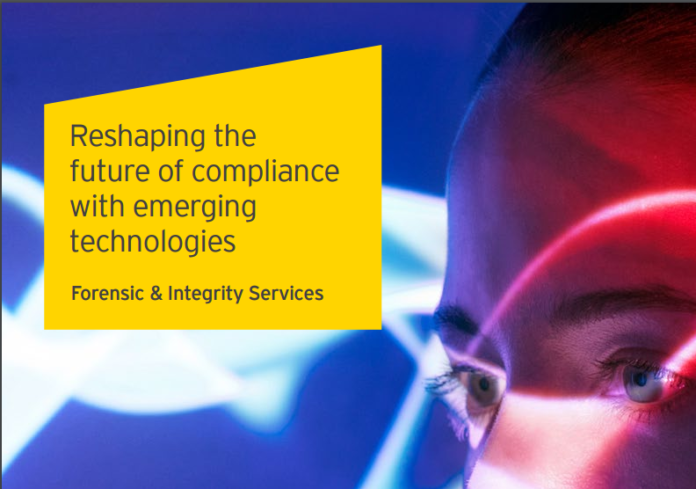
- 42% said concerns around regulatory response has increased over the last one year
- 60% plan to increase investments in technology for compliance and integrity frameworks
- 37% said Artificial Intelligence and 35% pointed to Forensic Data Analytics as drivers in the digital transformation of compliance
Turbulent economic conditions, tighter regulatory norms and deeper concerns around cybercrime and data privacy are propelling greater investments in technology for compliance within corporate India, according to EY Forensic & Integrity Services and ACFE Mumbai Chapter’s survey titled, ’Reshaping the future of compliance with emerging technologies’. The survey highlights that cybercrime (58%), regulatory scrutiny (50%) and fraud risks (40%) are the predominant reasons for rapid technology adoption within compliance, risk and integrity frameworks. Further, 60% of the respondents plan to increase investments in forensic technology over the next one year, and 29% plan to invest over INR 10 crore to drive digital transformation over the next two years.
Arpinder Singh, Global Markets and India Leader, Forensic & Integrity Services, EY said, “Digital megatrends are disrupting business strategies, and impelling greater adoption of emerging technologies such as AI, RPA and blockchain. Moving from traditional rule-book methodologies of compliance management to building digitally powered compliance, risk and anti-fraud programs is more important than ever. The convergence of compliance and technology can be a strong catalyst for a sharper approach to risk mitigation, meeting regulatory expectations, enhancing the trust agenda and maximizing long term stakeholder value.”
Harshavardhan Godugula, Partner, Forensic & Integrity Services, EY added, “New forms of cyberattacks, privacy concerns and regulatory oversight are likely to keep increasing despite the myriad of security solutions. There has been greater pressure on businesses to better articulate the risks of not investing in digitally enabled solutions and its business value, in a way meaningful to the management. Emerging technologies should be considered as a core element in organizations business culture, and significant in board meeting agendas.”
EY Forensic & Integrity Services and ACFE Mumbai Chapter conducted a survey with over 100 senior compliance, legal and risk executives from Indian and multinational corporations. The report covers insights on how companies are adopting technology to mitigate risks, emerging trends in fraud, cybercrime and data privacy, and organizations’ digital readiness in the new normal. Key findings of the survey include:
Emerging technologies are driving organizational integrity
The digital shift within corporate India accelerated during the pandemic to maintain business continuity, manage operations and address risks. The survey states that apprehensions around data privacy compliance (66%), third party risks (57%) and employee fraud (32%) have increased over the last one year. Emerging technologies can be pivotal in addressing these threats and enhancing integrity. The survey outlines that 71% of the respondents stated early risk detection, 52% said improved response time in investigations and 40% said end-to-end compliance management as the main benefits of using forensic technology in compliance, risk and legal functions.
AI, RPA and blockchain expected to witness greater adoption
Organizations have been gradually leveraging technological tools and solutions for regulatory compliance and process improvements. AI (57%), cyber forensics (47%), RPA (42%) and blockchain (30%) are expected to be integrated deeply within the companies’ overall compliance and risk framework, covering audit, controls, governance and security. The inclination is high with 29% planning to invest over INR 10 crores to drive digital transformation over the next two years. But high costs (32%) and lack of a clear strategy, expertise, knowledge or talent (25%) may be potential deterrents in this journey.
Data privacy challenges and cyber breaches continue to ravage the industry
The use of unsecured websites, software exposures and lack of cyber awareness saw avalanche of incidents where cybercriminals exploited the vulnerabilities of remote working. As per the survey, concerns around data privacy (66%), and cybercrime and ransomware (53%) increased tremendously over the last one year. Over 40% also felt the biggest challenge in managing data protection and data privacy compliance was the limited understanding of relevant regulations in multiple jurisdictions; 50% did not have a Data Protection Officer in their organization. Worryingly, 40% stated they had a cyber breach in their organizations in the last one year and 50% did not have any cyber insurance.













































